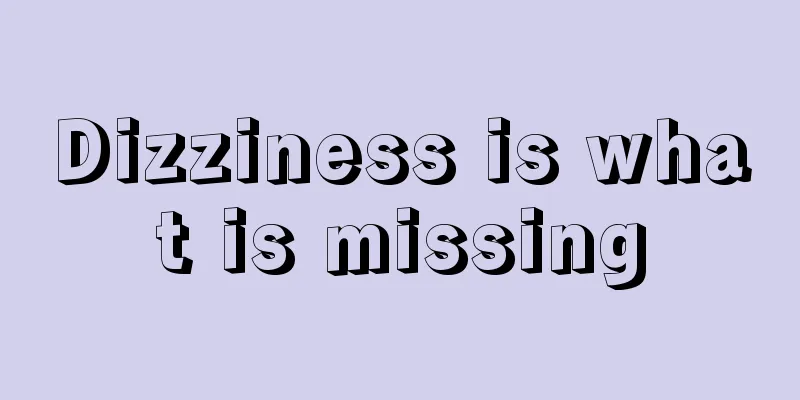Dizziness is what is missing

|
Although dizziness will not cause substantial harm to the body, it can cause the body to lose its sense of balance and the ability to stand. The body's tilting after dizziness will inevitably cause some accidents, posing a greater safety hazard to the body. There are many reasons for dizziness, and modern research has found that most dizziness is related to nutritional deficiencies in the body. Let’s take a look at what causes dizziness. Dizziness can be divided into two types: lightheadedness and vertigo. Dizziness and lightheadedness can lead to nausea or a feeling of possible fainting, so lying down may help. Dizziness, however, is another matter, as it causes a feeling of dizziness and makes it difficult to maintain balance. While there are many factors that can cause dizziness, most of them are related to nutritional deficiencies in the body. Iron deficiency (anemia) If your diet lacks iron-rich foods like green leafy vegetables and eggs, it will be difficult to produce enough hemoglobin and red blood cells. These cells are responsible for transporting oxygen throughout the body. A lack of red blood cells can lead to an inadequate supply of oxygen, which can cause dizziness, fatigue, shortness of breath and other problems. Sometimes, people who eat a healthy diet can still be iron deficient, which may be related to the body's difficulty absorbing iron. These people are advised to take vitamin C supplements, which aid in the absorption of iron. Vitamin B12 deficiency B12 plays an important role in human growth and is responsible for DNA synthesis and nerve function. It is also needed for red blood cell production and various acid reactions in the body. Vitamin B12 deficiency can lead to problems such as dizziness, megaloblastic anemia, atherosclerosis, and even cardiovascular disease. Deficiency of this vitamin can also induce psychological illnesses such as depression, dementia, personality changes, psychosis and memory impairment. There are many reasons that can lead to vitamin B12 deficiency. Some people have difficulty absorbing B12, while others lack this vitamin in their diet. Foods rich in vitamin B12 include meat, fish, eggs and dairy products. Vitamin B6 deficiency Vitamin B6 exists naturally in the human body in three forms: pyridoxal, pyridoxine and pyridoxamine, all of which can be processed and converted by the body into the required active form. Vitamin B6 deficiency is rare because it is easily obtained from foods such as wheat, soy, yeast, walnuts and sunflower seeds. Overcooking destroys the B6 in food, so raw foods are highest in this nutrient. Vitamin B6 is also responsible for regulating mood, which means that its deficiency can lead to depression, mood swings, and other psychological problems. Other symptoms associated with B6 deficiency include dizziness, anemia, insomnia and weakness. |
>>: Lying down and feeling dizzy and nauseous
Recommend
Are there any cases of gallbladder cancer being cured?
Gallbladder cancer can cause serious harm to the ...
What are the methods for cleaning range hoods
The range hood has become a must-have in every ho...
How to make handmade mushrooms
There are many ways to make handmade mushrooms. M...
What are the disadvantages of not getting sun exposure
With the quickening pace of modern life, more and...
What are the nursing methods for fibroids
In daily life, fibroids can often be felt by hand...
What should I pay attention to after bladder cancer surgery?
Bladder cancer is the most common malignant tumor...
What foods to eat for strong hair
Every autumn, many people experience hair loss. A...
What are the effects of glutinous rice wine
Glutinous rice wine is also called Jiangmi wine, ...
How does laryngeal cancer spread and metastasize?
In recent years, laryngeal cancer has become one ...
What essential oil is best for dry, frizzy hair?
If your hair becomes dry and frizzy, you can use ...
How to remove the fishy smell from pork kidneys?
Pork kidneys are the kidneys of pigs. Many people...
How to keep clothes from getting wet under the armpits
In life, there are always some people who are bor...
Can you eat eggs with black spots on the shell?
Eggs are a type of egg we often eat. When eating ...
Left hilar inflammation
COPD is a very common disease. This disease will ...
How to remove dead skin on legs
If we want to remove the dead skin on our legs, w...









